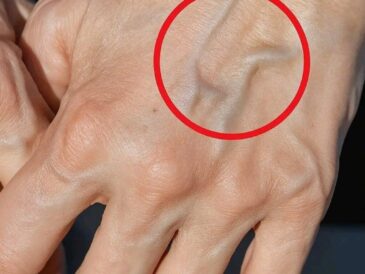For many people—especially women—the sudden appearance of chin hair can be surprising, frustrating, and even embarrassing. While it may seem random, science shows that chin hair growth is influenced by a complex mix of hormones, genetics, and age-related changes. Understanding the causes can help reduce stigma and guide people toward appropriate solutions.
1. The Role of Hormones
Androgens (Male Hormones in Everyone)
- Chin hair growth is primarily controlled by androgens, a group of hormones that includes testosterone and DHEA (dehydroepiandrosterone).
- Though often labeled “male hormones,” women also produce androgens in smaller amounts.
- When androgen levels rise—or when the body becomes more sensitive to them—fine, light hair (vellus hair) can transform into thicker, darker, and coarser hair (terminal hair).
Hormonal Imbalances
- Polycystic Ovary Syndrome (PCOS): One of the most common conditions linked to excess hair growth (hirsutism). PCOS affects up to 10% of women of reproductive age worldwide.
- Adrenal gland disorders: Such as congenital adrenal hyperplasia or adrenal tumors, which can overproduce androgens.
- Menopause: Declining estrogen levels allow androgens to exert a stronger influence, leading to new facial hair growth.
2. Age and Life Stages
- Puberty: Hormonal surges during adolescence can activate dormant hair follicles on the face.
- Pregnancy: Hormonal fluctuations may trigger temporary increases in chin hair growth.
- Menopause: As estrogen levels drop, hair growth on the scalp may thin, while facial hair (particularly on the chin) can increase.
👉 Research from the Journal of Clinical Endocrinology & Metabolism suggests that 30–40% of women over 50 experience noticeable facial hair growth.
3. Genetics and Ethnicity
- Genetics play a major role in determining whether someone will develop chin hair.
- People of Mediterranean, South Asian, or Middle Eastern descent, for instance, tend to have more terminal hair follicles than those of East Asian descent.
- If your mother, grandmother, or sisters have chin hair, chances are higher you will too.
4. Medical Conditions and Medications
- Cushing’s Syndrome: Caused by high cortisol levels, it can lead to increased facial hair.
- Medications: Certain drugs, such as corticosteroids, anabolic steroids, and some epilepsy medications, may promote excess hair growth.
- Thyroid disorders: Both hypothyroidism and hyperthyroidism can affect hair growth cycles.
5. The Science of Hair Follicles
Every hair follicle has receptors that respond to hormones. On the chin and jawline, these follicles are especially sensitive to androgens.
- When androgens bind to these receptors, they trigger changes in hair follicle activity.
- This explains why chin hair often appears in adulthood, even if someone had none during adolescence.
6. When to See a Doctor
TO CONTINUE READING THE ARTICLE PLEASE SEE PAGE 2
Pages: 1 2




